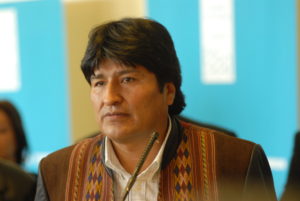‘I Got Into Sex Work to Afford to Be a Writer’
Brooklyn journalist Melissa Gira Grant is one of the voices who has emerged in the last few years to defend the rights and dignity of people working in all parts of the sex industry. As her new book hits the shelves, she tells The Guardian about moving from sex work into journalism.
Brooklyn journalist Melissa Gira Grant is one of the voices who has emerged in the last few years to defend the rights and dignity of people working in all parts of the sex industry. As her new book hits the shelves, she tells The Guardian about moving from sex work into journalism.
Grant, who holds degrees from the University of Massachusetts and San Francisco State University, was one of the first girls to point a webcam at herself and strip. Writing in The Guardian, Jezebel, The Washington Post and elsewhere, she has drawn on her experiences in the industry to argue that sex workers’ rights should trump the moral objections held by some when it comes to securing their safety and livelihoods.
As The Guardian’s Liz Hoggard put it, by emphasizing the “work” aspect of the experience, Grant is saying that “sex workers become neither corrupters, nor victims who need rescuing, but workers who need access to healthcare, a safe work environment and protection from abuse and exploitation.”
In a conversation published on The Guardian’s website, Hoggard spoke with Grant about the significance of her new book, “Playing the Whore: The Work of Sex Work,” published this month by Verso and Jacobin.
“The sex industry is an endless source of fascination for the mainstream media. But rarely do dispatches come from sex workers themselves. What do you believe your new book adds to the debate?” Hoggard asked.
Grant responded: “When I first started looking for things to read about sex work in the late 1990s, most of the books that had been published were memoirs, though there were a couple of great anthologies of political essays written by sex workers that I just found so valuable. But in the past few years there haven’t been as many books like that, so I wanted to write something about sex work post-2000, to update that literature. Most of the stories about sex workers that I came across in the press focused on sex workers’ behaviour — or, even worse, treating sex workers as a problem to be solved. It made me think that what needed to be done was invert the question, and take the people who were shaping and controlling the lives of sex workers (police, press, policy makers) and to put the focus on them. And to ask questions about their motivations, beliefs and values, and also what they stood to gain from the kinds of stories they shared about sex work, and the kinds of policing and sex policy they were introducing around sex work — particularly with the absence of sex workers involved. These people I focus on are presumed to be the experts on sex work, even though in most cases they haven’t done sex work themselves. It happens all the time that politicians will convene and debate laws about sex work without actually having sex workers participate.”
Read more of their conversation here and read an excerpt of Grant’s book here.
— Posted by Alexander Reed Kelly.
Your support matters…Independent journalism is under threat and overshadowed by heavily funded mainstream media.
You can help level the playing field. Become a member.
Your tax-deductible contribution keeps us digging beneath the headlines to give you thought-provoking, investigative reporting and analysis that unearths what's really happening- without compromise.
Give today to support our courageous, independent journalists.






You need to be a supporter to comment.
There are currently no responses to this article.
Be the first to respond.